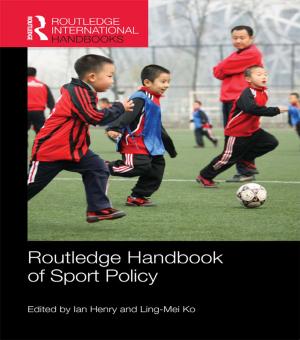Play Better Games
Enabling Children with Autism to Join in with Everyday Games
Nonfiction, Reference & Language, Education & Teaching, Special Education| Author: | Carmel Conn | ISBN: | 9781351702577 |
| Publisher: | Taylor and Francis | Publication: | July 5, 2017 |
| Imprint: | Routledge | Language: | English |
| Author: | Carmel Conn |
| ISBN: | 9781351702577 |
| Publisher: | Taylor and Francis |
| Publication: | July 5, 2017 |
| Imprint: | Routledge |
| Language: | English |
Ordinary games are an important vehicle for children's learning. They provide a powerful, naturally occurring learning environment that is physical, playful and fun. Playing games requires interpersonal skills in language, thought, social behavior, creativity, self-regulation and skilful use of the body. When children play games together they develop the following key capacities:
•Cooperative behavior
•Focused attention
•Social understanding
•Holding information in mind
•Motor, spatial and sequential planning
•Self-regulation, e.g impulse control, coping with excitement, controlled exertion
•Collaborative behavior and negotiation
•Self-expression and creativity.
Games provide a social experience that is emotionally compelling, where children laugh and have fun and do not realise they are interacting, problem solving, negotiating and cooperating with each other.
Play Better Games is designed to help practitioners and parents to think about what might prohibit their children from joining in with games and plan effective strategies for support. It will be of benefit to teachers, therapists, group works, play workers, midday supervisors and support workers, as well as to parents and siblings of children with autism.
Ordinary games are an important vehicle for children's learning. They provide a powerful, naturally occurring learning environment that is physical, playful and fun. Playing games requires interpersonal skills in language, thought, social behavior, creativity, self-regulation and skilful use of the body. When children play games together they develop the following key capacities:
•Cooperative behavior
•Focused attention
•Social understanding
•Holding information in mind
•Motor, spatial and sequential planning
•Self-regulation, e.g impulse control, coping with excitement, controlled exertion
•Collaborative behavior and negotiation
•Self-expression and creativity.
Games provide a social experience that is emotionally compelling, where children laugh and have fun and do not realise they are interacting, problem solving, negotiating and cooperating with each other.
Play Better Games is designed to help practitioners and parents to think about what might prohibit their children from joining in with games and plan effective strategies for support. It will be of benefit to teachers, therapists, group works, play workers, midday supervisors and support workers, as well as to parents and siblings of children with autism.















